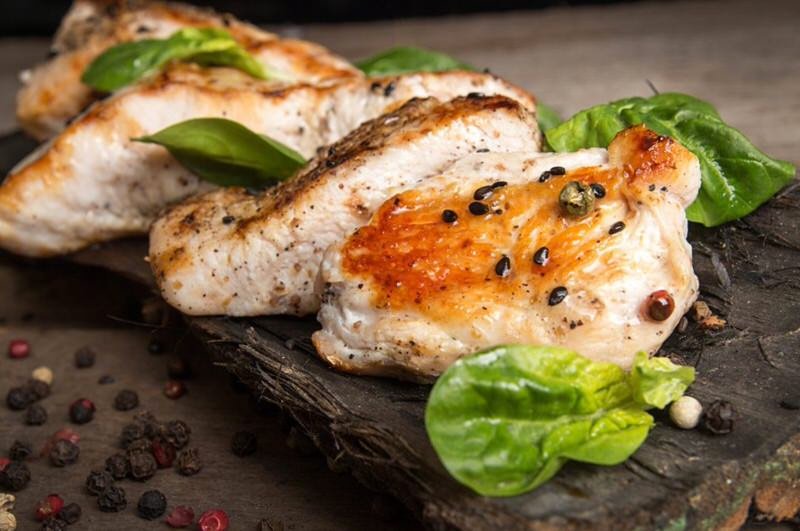Turkey is a very healthy white meat, being tremendously rich in good quality protein. That is why it becomes an excellent option to add to the diet.

Recommended in the diet, for everyone and defined as one of the healthiest meats there is. Turkey is a food rich in protein that also provides little fat. It is consumed daily by millions of people and offers many more benefits to lead a healthy and healthy life.
Turkey belongs to the group of white meats, so, unlike red meats, they are low in calories. We discover all its benefits and properties.
Nutritional properties of turkey
100 grams of turkey provide various nutritional properties. For example, it contains 160 calories per 100 grams, 0 grams of carbohydrates, 8.5 grams of fat, 45 mg of cholesterol, 0 of the glycemic index and 20 grams of protein.
Rich, healthy and tender, turkey meat is made up of 75% water. This makes it a meat with low calories, providing 161 kcal per serving.
It is also rich in proteins, especially of high biological value, and with this we already have what we need to nourish ourselves properly, because it is what the body needs. In turn, it has little fat (8.50 grams of fat per 100 grams), perhaps more on the skin, but this is removed without problem.
It also does not contain carbohydrates, does not contain sugar, and contributes 157 calories to the diet. Among its nutrients, it is also worth highlighting the presence of vitamins B9, A, K and B7. Turkey is rich in fatty acids, and many vitamins, such as iron, potassium, magnesium, selenium, zinc, and phosphorus.
Health benefits of eating turkey
Turkey is excellent for a number of reasons. First of all, it should be noted that it is considered a good meat for all ages. In fact, it is one of those that young children can eat without problem and its texture makes it more digestible than other somewhat drier meats. For this reason it is also recommended for older people.
Protect the heart
Thanks to the amount of nutritional properties it presents, they provide benefits that protect the heart.
This also makes, being its very low cholesterol content (100 grams contains only 45 mg.), it is ideal for people who need to have low-fat foods or who have problems related to the appearance of all kinds of cardiovascular diseases.
Rich in B vitamins
Turkey stands out for its amount of B vitamins such as niacin or B12. Such vitamins, as we have pointed out, help regulate the level of cholesterol and sugar in the blood.
They also facilitate digestion and contribute to the formation of red blood cells in the blood.
Perfect for dieting
This meat is included in all possible diets. Being low in fat, (it does not reach 1 gram of fat per 100 total grams) it can be taken in the morning and at night, and it does not promote fluid retention; on the contrary, it helps to maintain the body and lose weight.
Many people take it when they do sports, want to define their body or when they start a diet to lose weight.
A large entourage of minerals
The amount of minerals that the turkey carries, such as iron or zinc, favors not only the protection of the heart, but also the intervention in the balance of nervous functioning. Being vital for the transmissions of the brain.
The fact that it has so many minerals strengthens the immune system, directly responsible for making us sick more or less easily. Selenium, for example, is very important for thyroid hormone metabolism.
Protein source
Turkey is rich in proteins of high biological value. Every 100 grams provides us with about 25 grams of protein. As it contains amino acids, its nutritional value and quality is superior to that of other meats.
Thousands of tasty recipes
The turkey allows to make many recipes that are known throughout the world. On the one hand, the stuffed turkey, which is usually styled at Christmas, and, on the other, eating turkey is a clear advantage when cooked in various ways: breast, leg, whole turkey, sliced, thighs…































